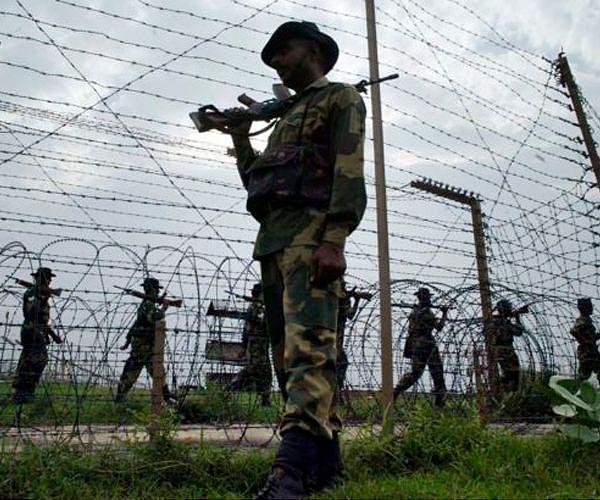Threat of India-Pakistan conflict after Kashmir attack
by AFP Staff Writers
Paris (AFP) April 30, 2025
A deadly attack in the contested Kashmir region has prompted fears of spiralling conflict between nuclear-armed India and Pakistan.
New Delhi, which accuses Pakistan of backing the attack, has not yet taken military action. But Prime Minister Narendra Modi has given the Indian army “complete operational freedom” to respond.
Pakistan, which denies responsibility, has vowed to retaliate against “any act of aggression”.
– Deadly precedent –
The worst recent attack in Indian-run Kashmir was at Pulwama in 2019, when a suicide bomber rammed a car packed with explosives into a security forces convoy, killing 40 and wounding 35.
Indian fighter jets carried out air strikes on Pakistani territory 12 days later.
“The situation was eventually defused, thanks in part to diplomatic pressure from Washington, but relations have remained at a standstill ever since,” said Praveen Donthi, an analyst for the International Crisis Group.
Modi “showed he was capable of using force in 2019 and is now reaffirming that capability”, said Melissa Levaillant of the European Council on Foreign Relations’ Asia Programme.
– Modi under pressure –
Modi is facing mounting public pressure at home to respond to the attack.
“Many Indians demanded retribution against Pakistan,” Donthi said.
“Criticism of the Indian government’s perceived failure to protect civilians was also widespread.”
The attack prompted a wave of anti-Pakistan sentiment in India, Levaillant said.
“But it’s not clear exactly what the Indians want, particularly given that Pakistani support for terrorist groups has fallen sharply,” she told AFP.
– International response –
The international community may be less likely to intervene than after previous spates of violence, like in 2019, analysts said.
“The US has a full plate with Ukraine, Gaza and the Iran deal, which may provide an opening to Beijing to insert itself into the crisis,” said Colin Clarke, senior research fellow at The Soufan Center in New York.
“However, given China’s close relationship with Pakistan, it is unlikely that China would be trusted as an objective interlocutor by India.”
The United States would be even more likely to stay out of a possible conflict under the Trump administration, according to Levaillant.
“Their relations with Pakistan have deteriorated and Islamabad is no longer a strategic asset in managing the Taliban in Afghanistan,” she said.
– Military consequences –
Despite Modi’s bellicose statements, it was unclear if New Delhi would retaliate militarily against its neighbour, Donthi said.
“The ceasefire at the Line of Control, the de facto border between the Indian- and Pakistani-administered parts of Jammu and Kashmir, continues to hold for now,” he told AFP.
“But New Delhi could still decide to strike, especially if it feels emboldened to do so by the expressions of support it has received from around the world.”
Levaillant said both sides would be preparing for conflict, but that there were “still lots of unknowns” in the days-old crisis.
The Soufan Center’s Clarke said: “Sometimes with conflicts, especially between longstanding adversaries, inertia takes over and leads to a fog of war which further ratchets up tensions and makes the situation considerably more dangerous.”
– Nuclear context –
The most dangerous outcome of the attack could be a spiral into armed conflict between two nuclear-armed countries, analysts said.
“The fact that there is any risk of escalation between two nuclear powers is among the most serious global security issues that can ever occur,” warned Clarke.
The devastation from US atomic bomb attacks on Japan in 1945 led to a nuclear taboo that has since come under pressure, with Russian President Vladimir Putin repeatedly making nuclear threats since the start of the Ukraine war.
“This unrestrained global context shows that the nuclear red lines are shifting,” Levaillant said.
Managing the escalation between India and Pakistan was “extremely risky, with a very vague Pakistani nuclear doctrine,” she added.
But India could opt to “undermine this doctrine, show they can go and nibble away at a piece of territory” without Pakistan striking back.
Related Links
News From Across The Stans

